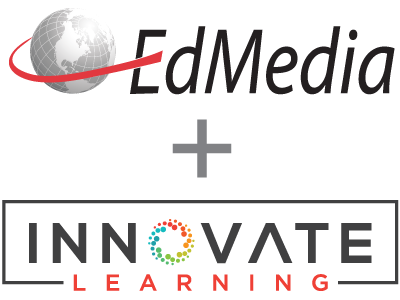
Towards a generalised conceptual framework for learning: the Learning Environment, Learning Processes and Learning Outcomes (LEPO) framework
PROCEEDINGS
 Rob Phillips, Educational Development Unit, Murdoch University, Australia
; Carmel McNaught, Centre for Learning Enhancement And Research, The Chinese University of Hong Kong, Hong Kong
; Gregor Kennedy, Melbourne Medical School, The University of Melbourne, Australia
Rob Phillips, Educational Development Unit, Murdoch University, Australia
; Carmel McNaught, Centre for Learning Enhancement And Research, The Chinese University of Hong Kong, Hong Kong
; Gregor Kennedy, Melbourne Medical School, The University of Melbourne, Australia
EdMedia + Innovate Learning, in Toronto, Canada ISBN 978-1-880094-81-5 Publisher: Association for the Advancement of Computing in Education (AACE), Waynesville, NC
Abstract
We argue in this paper is that there is a lack of clarity about learning in its broadest form, and we address this by proposing a generalised and integrated conceptual framework for learning. The Learning Environment, Learning Processes and Learning Outcomes (LEPO) framework conceptualises learning as having three components: the environment which facilitates learning (Learning Environment), the activities which are part of learning (Learning Processes) and the knowledge, behaviours, skills or understanding which can be demonstrated (Learning Outcomes). Two general actors interact with these three components, the student and the teacher. The paper discusses the origins of the framework, justifies its form and validates it against other conceptual frameworks. It concludes with a brief discussion about how it can be used to improve both the educational design of educational innovations and evaluate/ research into the effectiveness of educational innovations.
Citation
Phillips, R., McNaught, C. & Kennedy, G. (2010). Towards a generalised conceptual framework for learning: the Learning Environment, Learning Processes and Learning Outcomes (LEPO) framework. In J. Herrington & C. Montgomerie (Eds.), Proceedings of ED-MEDIA 2010--World Conference on Educational Multimedia, Hypermedia & Telecommunications (pp. 2495-2504). Toronto, Canada: Association for the Advancement of Computing in Education (AACE). Retrieved August 8, 2024 from https://www.learntechlib.org/primary/p/34989/.
© 2010 Association for the Advancement of Computing in Education (AACE)
Keywords
Cited By
View References & Citations Map-
Creating Collaborative and Convenient Learning Environment Using Cloud-Based Moodle LMS: An Instructor and Administrator Perspective
Vikas Kumar, School of Business Studies, Sharda University, Greater Noida, India; Deepika Sharma, Jagannath University, Jaipur, India
International Journal of Web-Based Learning and Teaching Technologies Vol. 11, No. 1 (January 2016) pp. 35–50
These links are based on references which have been extracted automatically and may have some errors. If you see a mistake, please contact info@learntechlib.org.
